VietNamNet Bridge - A popular weekend escape from Saigon, Vung Tau rocks at weekends when beach-starved locals and expats descend in numbers, but it is relatively quiet during the week.
The city enjoys a spectacular location on a peninsula, with the ocean on three sides, while the light and sea air makes it a refreshing break from sultry Saigon. But that is not all in Vung Tau. Religion is also an important part.
Here are the largest, holiest pagodas in Vung Tau.
Thich Ca Phat Dai

Thich Ca Phat Dai (Platform of Shakyamuni Buddha) is a notable Theravada Buddhist temple. It lies to the northwest of the Lon (Big) mountain and was built between 1961 and 1963.
It is set on a plot of around five hectares, with a Zen Buddhist monastery at the foot of the plot and the Thich Ca Phat Dai at the top.
The Zen monastery is a small brick temple built by a government official from Vung Tau in 1957.
In 1961, the Buddhist association organised a renovation of the monastery and decided to build the Thich Ca Phat Dai further up the mountain. Additional lodgings were built to cater to Buddhist pilgrims who visit the site.
This pagoda exists exclusively for religious worship, unique in its white cement construction of the giant statue of Thich Ca Buddha sitting on a large lotus blossom.
The grounds are dense with foliage, resembling a jungle and heavily populated by birds. The white colour of the statue and the stupa contrasts the blue and green background of the surrounding sky and forest.
The site has become a major tourist location in the city as well as a tourist lookout.
In addition, the pagoda has a 17m-high Blessing tower, containing a yellow box containing 13 Blessing spheres of the true practitioners.
Under the tower are four peaks, which mean that the ground is where the Buddha was born.
         |
Quan The Am Bo Tat (Pagoda of Avalokitesvara Bodhisattva)

This is a small pagoda located on Tran Phu Street. In front of the pagoda is the Strawberry Beach.
A special feature of the pagoda is the 16m high white statue of Guanyin standing on a lotus with a kindly and virtuous face and a Cam Lo pot in the hand looking to the sea.
The pagoda is one of the most famous destinations for pilgrimages to this beautiful city.
Behind the pagoda is a mountain, in front is the sea, and because of that, the pagoda is always an attraction for the holidays and full moon days.
Coming to Vung Tau in the spring, travelers should pay the pagoda a visit, to admire the beautiful scenery and explore the traditional culture.
       |
Niet Ban Tinh Xa (Nirvana Vihara)

Situated on the slopes of Mount Small on Ha Long road, Nirvana Vihara Pagoda is one of the most beautiful pagodas in Vung Tau, where traditional architecture and the modern combine harmoniously.
It is also known as the Buddhist Pagoda because of the 12 m long Nirvana Buddha statue located in the main hall of the pagoda, placed on the 2.5 m high altar.
The outer surface of the altar is an image of His disciples witnessing Buddha attain Nirvana.
Viewing the open and pure space, facing the vast ocean, and surrounded by woods, from the roof of the pagoda, visitors can admire the blue sea of Vung Tau with boats on the far side of the horizon.
         |
Linh Son Co Tu (Epigraphic of Linh Son)

The ancient statue at the pagoda
Located on Hoang Hoa Tham Street in Vung Tau downtown, the pagoda doesn’t have massive scale, but Linh Son Pagoda is the oldest pagoda in Vung Tau.
The Main Hall of the pagoda worships a 1.2 m high Buddha statue made out of stone, with carved gold on the outside. The details of the statue were created meticulously.
Based on the way the statue was crafted, the origin of the statue was 1,600 years ago, back in the days of the Ancient Champa.
Visit the temple on weekdays, when visitors are free to fall into the peaceful and quiet world. Visitors can have their stress relieved, andcan study the architecture of the ancient pagoda.
           |
Monastery Chon Khong

The monastery, built in 1969, is located at an altitude of 80 meters on the slopes of Big Mountain.
The temple’s main infrastructure such as the Main Tower, the Main Hall, bell tower, the meditation hall, the nuns’ hall and the guest house is highlighted by the majestic mountain backgrounds.
In order to reach the monastery, tourists have to climb a slope. The two sides of the road are trees which shade covering the way to the top.
The entrance is located midway on ramps. Passing the gates, tourists can see the Main Hall which appears far away.
         |
Truc Lam Chan Nguyen Monastery

Located at the foot of the Minh Dam Mountain, Phuoc Hai, Truc Lam Chan Nguyen Monastery is only one kilometer away from Hai Long freshwater pass.
It also has a cherry blossom forest that covers the scene with white every spring.
With the quiet space for meditation blending with magnificent nature, the scene in Monastery Truc Lam Chan Nguyen can mesmerize anyone stepping foot into this majestic and poetic heaven on earth.
This is where the soul can reach serenity and true peace and all of that can mix with the blue of the sea and the sky, with the green of the forest behind.
Highlighted in green of the mountains is the Main Hall built under the mountains. Behind the pagoda are rocks in many shapes such as snakes, tortoise… in the traditional colors of Buddhism.
A special feature of the pagoda is that there are usually hundreds of monkeys around the area of the pagoda. So the pagoda is also known as the Monkey Pagoda.
Travelers often bring fruit, bananas, and food for monkeys to the temple, so the monkeys are quite friendly.
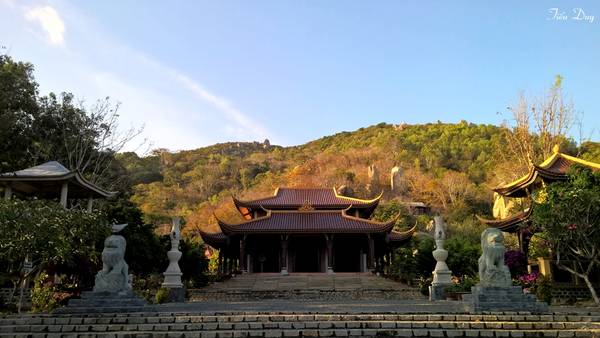 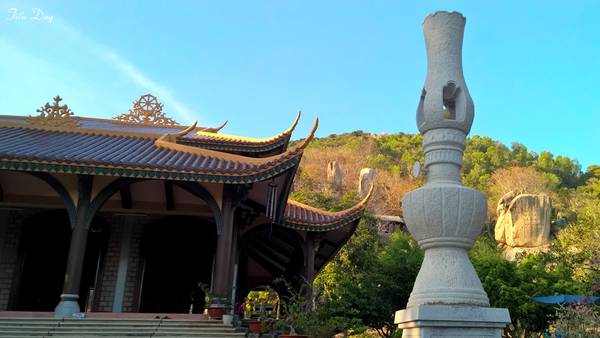 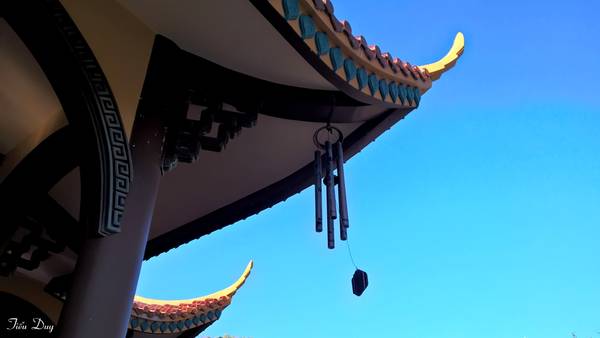 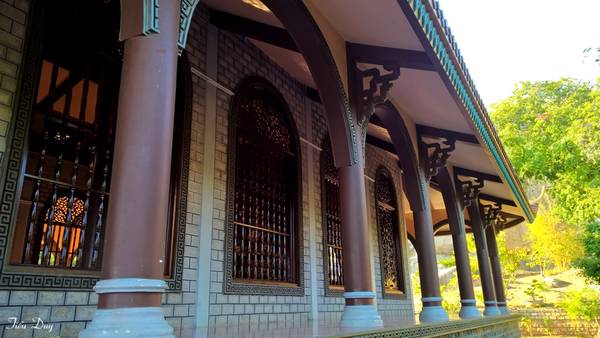 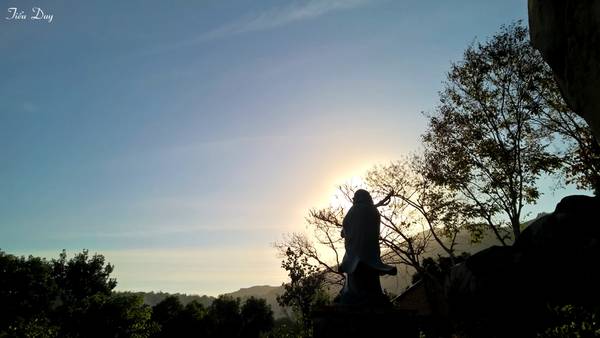 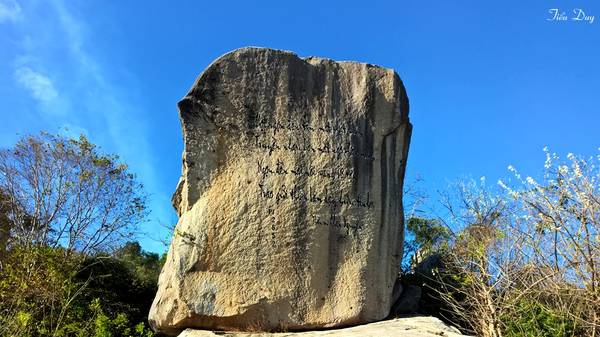 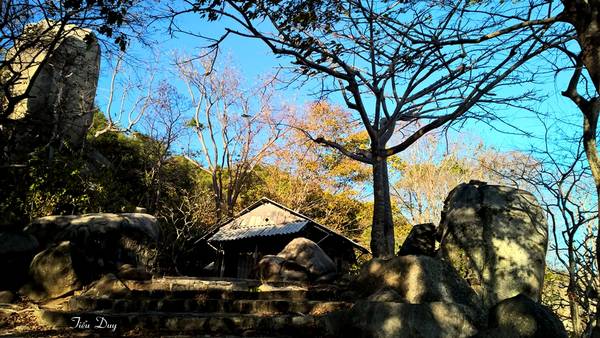 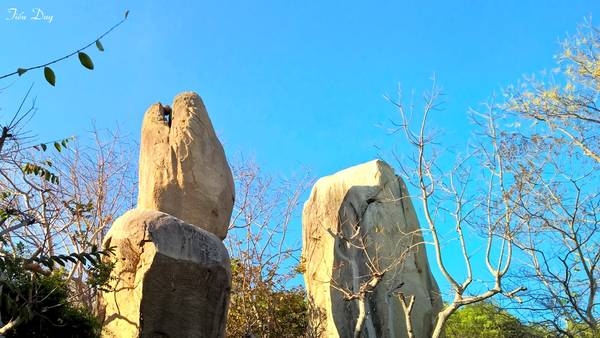 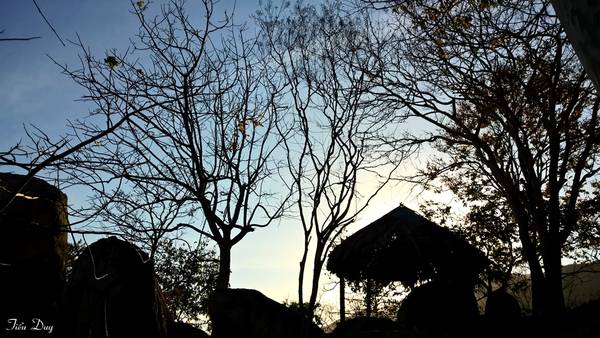 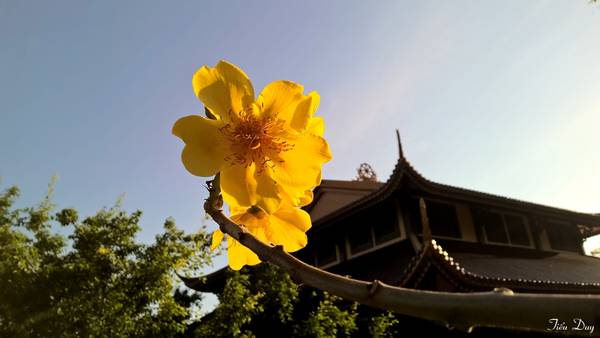 |
| Photo: ivivu |
Compiled by Pha Le